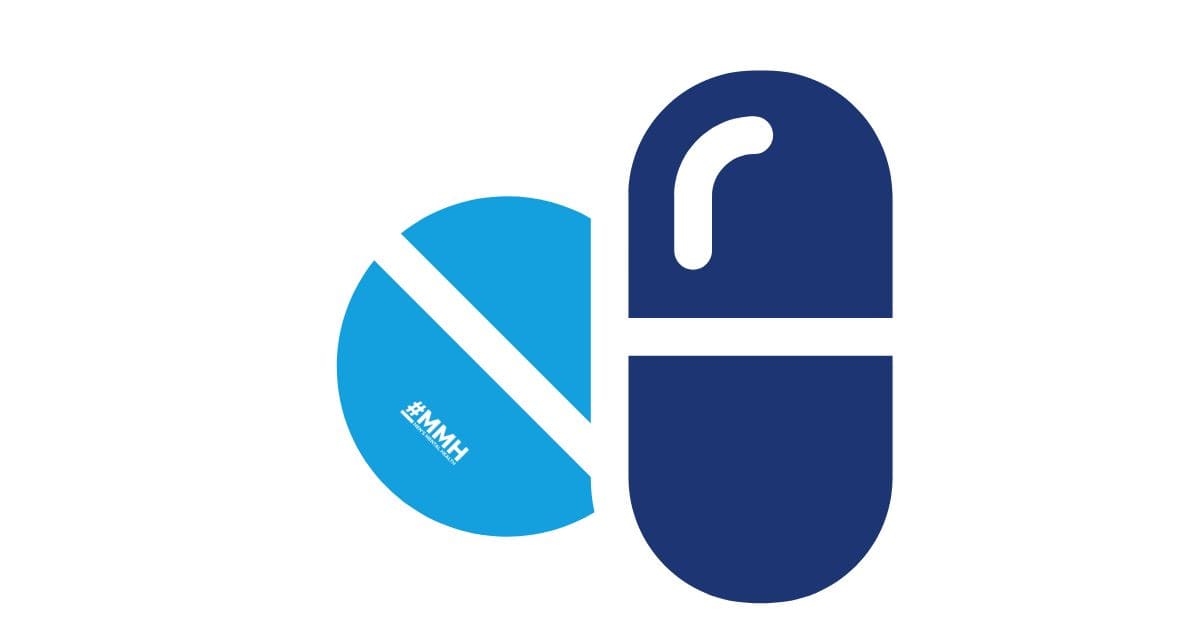MMH Men’s Mental Health does not provide direct mental health support. We do not offer crisis intervention, therapy, counselling, or medical advice. Instead, we provide information and signposting to external services that may be able to help.

Anti-Anxiety Medications
Finding it hard to manage? You don’t have to go through it alone.
Need to talk?
Samaritans are here to listen, 24/7, 365 days a year. You can call them for free on 116 123 or visit www.samaritans.org
Prefer to Text?
Shout is a free, confidential, 24/7 text messaging support service for anyone who is struggling to cope.
If you feel in danger please call 999 or go directly to emergency services.
Anti-Anxiety Medications: Managing Anxiety and Panic Disorders
Anti-anxiety medications are prescribed to help manage anxiety disorders, panic attacks, and excessive worry. These medications work by calming the nervous system, reducing physical symptoms, and improving overall emotional well-being.
📌 For many individuals, anti-anxiety medication provides relief, making it easier to engage in therapy, lifestyle changes, and daily activities.
If persistent anxiety is affecting your daily life, medication may be a helpful part of a broader treatment plan.
What Are Anti-Anxiety Medications?
Anti-anxiety medications regulate neurotransmitters in the brain that influence stress, mood, and emotional responses.
✅ How these medications help:
✔ Reduce excessive fear and anxiety, allowing for better daily functioning.
✔ Target both physical and emotional symptoms of anxiety disorders.
✔ Work best alongside therapy and lifestyle adjustments for long-term mental health support.
📌 These medications do not “cure” anxiety but can provide relief to help manage symptoms effectively.
How Can Anti-Anxiety Medications Help?
Anti-anxiety medications offer several benefits:
🔹 Reducing Panic Attacks – Helps manage sudden episodes of intense fear and distress.
🔹 Easing General Anxiety – Lowers excessive worrying, nervousness, and tension.
🔹 Improving Sleep Quality – Can promote relaxation and better sleep patterns.
🔹 Enhancing Focus & Clarity – Reduces racing thoughts and mental fog.
🔹 Supporting Emotional Regulation – Helps maintain balanced moods and reactions.
📌 For many, these medications provide a sense of stability, allowing them to focus on long-term coping strategies.
What to Expect When Taking Anti-Anxiety Medications?
If prescribed anti-anxiety medication, here’s what to keep in mind:
✅ Gradual Adjustment – Effects may take a few weeks to fully develop.
✅ Potential Side Effects – Some people experience drowsiness, dizziness, or mild nausea.
✅ Regular Monitoring – Follow-up appointments help assess effectiveness and adjust dosage if needed.
✅ Dependency Risks – Certain medications, like benzodiazepines, can be habit-forming if misused.
✅ Combination with Therapy – Best results occur when used alongside CBT or other therapy approaches.
📌 Medication should be used responsibly and under medical supervision to minimize risks and maximize benefits.
Types of Anti-Anxiety Medications
There are different classes of anti-anxiety medications, each working in specific ways:
🟡 Benzodiazepines – Fast-acting for short-term relief (e.g., diazepam, lorazepam, alprazolam).
🟡 Selective Serotonin Reuptake Inhibitors (SSRIs) – Often prescribed for long-term anxiety management (e.g., sertraline, fluoxetine, escitalopram).
🟡 Serotonin-Norepinephrine Reuptake Inhibitors (SNRIs) – Helps regulate both mood and anxiety (e.g., venlafaxine, duloxetine).
🟡 Beta-Blockers – Controls physical symptoms like rapid heart rate and tremors (e.g., propranolol).
🟡 Buspirone – A non-sedating option for chronic anxiety treatment, often used when benzodiazepines are not suitable.
📌 The most appropriate medication depends on individual symptoms, medical history, and doctor recommendations.
🚨 Anti-anxiety medications can be a helpful part of managing anxiety disorders, but they work best when combined with therapy, self-care, and healthy coping strategies. If you’re considering medication, consult a healthcare professional to explore your options.
Finding Support for Anxiety Treatment
If you’re considering or currently taking anti-anxiety medication, various resources in the UK can help:
- GP & NHS Services – Initial consultations and prescription management.
- Psychiatric Services – Specialist care for severe anxiety disorders.
- Pharmacist Advice – Guidance on medication interactions and side effects.
- Mental Health Charities – Organisations like Anxiety UK and Mind offer information and peer support.
- Online Support Communities – Forums where individuals share experiences and coping strategies.
Anti-anxiety medications can be a valuable tool in managing anxiety disorders, but they are most effective when combined with therapy, self-care, and lifestyle changes. Always seek professional medical advice before starting or changing any medication.
While we aim to provide accurate and updated information, MMH Men’s Mental Health is not responsible for the quality, accuracy, or availability of external services linked on this page. If you notice a broken link or have a resource to suggest, let us know.
Self-Help Strategies While Taking Anti-Anxiety Medications
While medication can provide relief, combining it with healthy habits can improve overall effectiveness. These are general suggestions and may not work for everyone.
If your struggles persist or affect your daily life, consulting a professional is recommended.
Practice Relaxation Techniques
Limit Stimulants
Engage in Regular Exercise
Follow a Consistent Routine
Stay Connected
Your Mental Health Matters.
There is no shame in needing support - everyone deserves help.
Take the next step:
Need to talk?
Samaritans are here to listen, 24/7. You can call them for free on 116 123 or visit www.samaritans.org
Prefer texting?
Shout offers free, 24/7 confidential support. Text ‘SHOUT’ to 85258 to start a conversation or visit
www.giveusashout.org
Explore More
Looking for guidance? Browse external resources on mental health, self-care, and well-being.
Support Groups
Find connection. Join an external support group and connect with others who understand.
